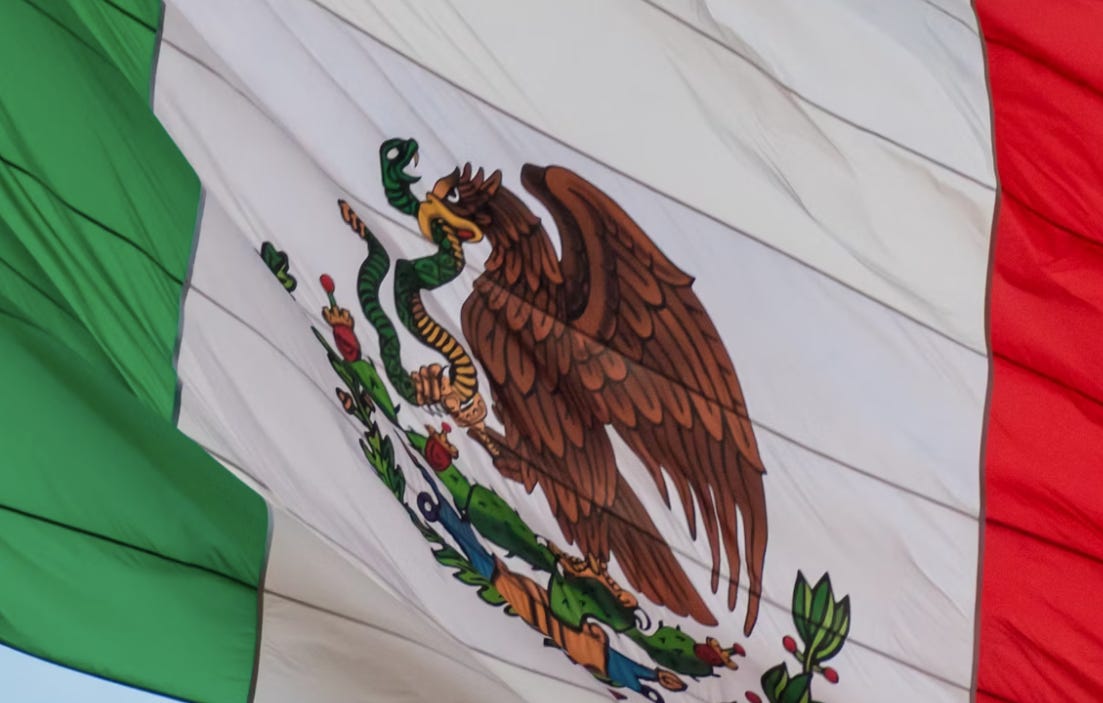Two startups to watch, and guess which nations are our largest trading partners?
Also: Chinese tech independence
Welcome to Cautious Optimism, a newsletter on tech, business, and power.
📈 Trending Up: Rivian’s capital base … Intel’s capital base … Telegram … Formula 1 … AI M&A? …
📉 Trending Down: Zoom’s share count … Drake’s presumed savvy … the podcasting center-left … Gautam Adani …
Two startups to watch
There’s a major ransomware attack impacting a primary supplier of U.K. and U.S. retailers. That’s not a rare type of headline, which is why Halcyon has my eye. It’s building anti-ransomware tech, and just raised $100 million at a unicorn valuation.
And after reading the Cloud Ratings B2B AI Interest Index this morning, I was surprised to see Copy.AI flagged as one of the most searched-for “Native AI” companies listed. I’ve covered Copy.AI since it was a neat little tool designed to help people write. That was before ChatGPT, naturally, but after GPT-3 came out. The startup has since greatly expanded its product remit. I need to check in with the team, frankly.
And then there were tariffs
Here’s the former and future president telling the market about his tariff plans:
On January 20th, as one of my many first Executive Orders, I will sign all necessary documents to charge Mexico and Canada a 25% Tariff on ALL products coming into the United States, and its ridiculous Open Borders. […]
Representatives of China told me that they would institute their maximum penalty, that of death, for any drug dealers caught [shipping drugs to the United States] but, unfortunately, they never followed through, and drugs are pouring into our Country, mostly through Mexico, at levels never seen before. Until such time as they stop, we will be charging China an additional 10% Tariff, above any additional Tariffs, on all of their many products coming into the United States of America.
By now you’ve read the arguments opposed to tariffs — that they are a tax on domestic consumers and can lead to reciprocal levies that harm domestic exports — and in favor of them — ‘no, they don’t’ — so we don’t have to retread that ground.
What I do want to point out is that slapping tariffs onto China, Canada, and Mexico impacts our largest trading partners. Here’s the Office of the United States Trade Representative on our largest export partners:
The top five purchasers of U.S. goods exports in 2022 were: Canada ($356.5 billion), Mexico ($324.3 billion), China ($150.4 billion), Japan ($80.2 billion), and the United Kingdom ($76.2 billion). U.S. goods exports to the European Union 27 were $350.8 billion.
And here are our largest import partners:
The top five suppliers of U.S. goods imports in 2022 were: China ($536.3 billion), Mexico ($454.8 billion), Canada ($436.6 billion), Japan ($148.1 billion), and Germany ($146.6 billion). U.S. goods imports from the European Union 27 were $553.3 billion.
Apart from hitting the EU with similar tariffs, tagging China, Canada, and Mexico is as disruptive a choice as you could possibly make if you picked just three targets.
What do we import from Mexico? According to Trading Economics data, vehicles electrical equipment, heavy machinery, furniture, medical items, agricultural goods, and booze. And those are just the categories with more than $10 billion worth of yearly imports to the United States! The lists from China and Canada are similarly varied, with a host of consumer and producer goods flowing into this nation from others.
And they are about to get more expensive. Not all at once. Businesses, anticipating Trump would follow through with his tariff pledges, pre-purchased some items. That will help keep the supply chain less painful to start. But those stocks will fade, and new finished and partially-finished goods will start to cost a lot more.
This is a loosely startup-focused publication, so I’ll just say this:
The market wants the Fed to cut rates further.
To get further rate cuts, we need inflation to tick lower.
Rising prices make inflation worse.
Ergo, tariffs are contra lower interest rates.
For tech startups, higher interest rates means less risk-attracted capital in the market, and therefore a less enticing IPO market and more expensive private-market investment. Both would be unwelcome developments.
It is too early to handicap the impact of massive, shock tariffs on critical trading partners until we sort out if they will be riddled with exceptions — or not. The more loopholes, the more the headline number doesn’t mean much. We’ll see. But all the same, a more inflationary trade posture is bad for startups hoping to list next year.
Closing, a lot of folks have told me that Trump was just spitballing and didn’t intend to do the things he said he would do. So far that’s not looking too correct, though, but we need more data to be certain.
In other news: Chinese tech independence
Xiaomi is readying a mobile chip to replace silicon made by other companies comes alongside reporting that HarmonyOS — the Huawei mobile OS that was, once, an Android variant — is targeting 100,000 apps for the platform.
The era of global tech platforms is increasingly looking multipolar.



